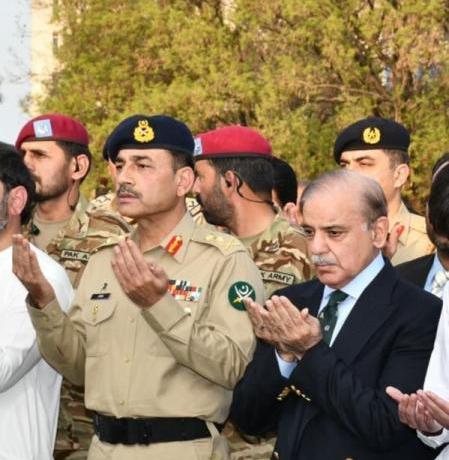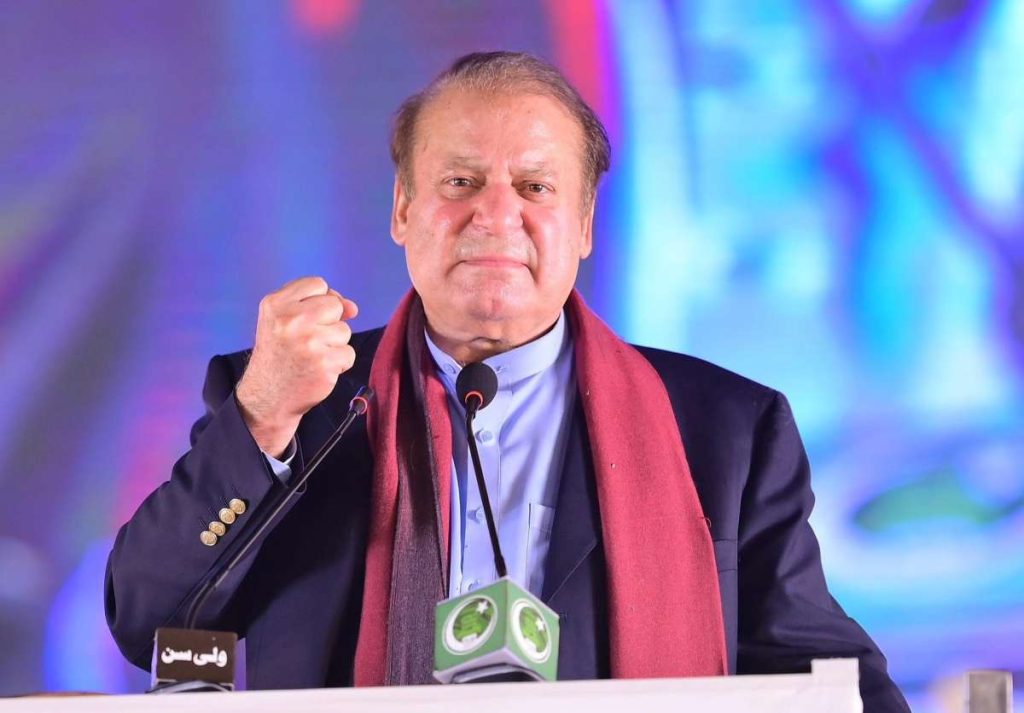
Pakistan has rarely been so devoid of democratic fair play at the time of election as it is today. Every string, tattered it might be, is held by the powerful but vacillating Pakistan Army. It is going to be a farcical election at best.
Political parties are in a disarray. PTI is broken and is not being even allotted its traditional symbol. The PTI chief and former Prime Minister, Imran Khan, is heaped with charges of corruption and unholy behaviour. PPP is struggling hard to find some ground in Sindh. So is Nawaz Sharif’s PMLN. His brother, Shehbaz Sharif, strangely remains in the background and could turn out to be a dark horse.

Everything depends on one person and one institution. General Asim Munir is holding the reins of the electoral process, with ISI chief, Lt. General Nadeem Anjum and few of his other confidantes aiding the army’s determined effort to make Imran Khan redundant and bring a malleable entity to Islamabad. Munir’s choice of Nawaz Sharif could turn out to be a grievous error–Sharif is not an easy push over and does have a trick or two up his experienced sleeve. His call, and the insistence, for accountability indicates his unwillingness to give the army a clean chit.
Any delay in the elections–it is scheduled for February 2024–could help Sharif to consolidate his position. He has money, clout, friends in Saudi Arabia, China and US, and could cause a turnaround in his favour if he plays the game set by the army with own referees. Only Sharif, of all the players in the ground, can play this game against the army.
The elections are far from being free and fair. The dates are still a suspense–may it will be announced after Munir’s return from Washington. Of late, the US has been taking undue interest in the elections in Pakistan and in Bangladesh. Pakistan is still important for the US, strategically, to counter the expansion of China across the continent and beyond. The coming of a pro-China party in Maldives has been a significant pointer. China’s role in Nepal, Bhutan, Bangladesh, Sri Lanka and Myanmar has only grown and consolidated over the years. Pakistan is possibly one player who wants, or has no choice, to play both sides.
China too is deeply interested in the elections in Pakistan. Sharif remains in the good books. Not Imran Khan. In fact, Khan is a persona non grata for both Washington and Beijing. PPP’s Zardari and Bilawal Bhutto have not shown great interest towards China. That leaves the ground for a newcomer who remains anonymous till now.
The army has been hobnobbing with former PTI leaders, now renamed as Istehkam-e-Pakistan Party (IPP), some elements of MQM minus Altaf Hussein, sections of PMLQ minus Pervaiz Elahi who had joined Khan and remains in prison on multiple charges of corruption. But he is a known turncoat and prone to changing sides for personal profit. There is also the possibility of Khan’s Foreign Minister Shah Mahmood Qureshi succumbing to pressure and becoming the dark horse. He is co-accused with Khan in the Cipher case and stands a chance to be acquitted given the inherent flaws in the criminal case.
This is going to be an election where people, the voters, have been given little credibility to choose who rules them. It is the unknown unknown. The voters can checkmate all these elaborate manipulations. This singular factor is what keeps the Generals sleepless in Rawalpindi.







